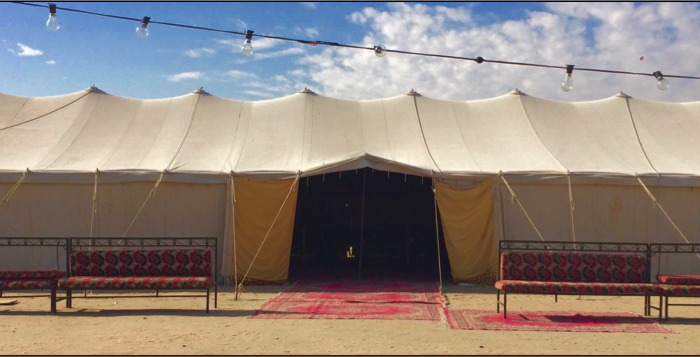Delete the term ‘ethnic.’ Representations of ‘Stateless Arabs.’
It was a pleasure to present my work at the tenth annual Researchers for Asylum seekers conference on the 16th of November, 2015. It was a rare privilege to exchange ideas with like-minded researchers who are concerned for the welfare of refugees and the manner in which they are represented in the media and academic texts. I commenced my research out of a desire to help solve the problems of refugees fleeing for safety in Australia. Why, I wondered, would native people flee from one of the richest nations in the world, Kuwait? How could this population be stateless? After all, British courts have already found the group are actually persecuted on the basis of their ethnic identity.
Why are there doubts about the ‘real’ identity of the Bedoun?
When I first looked into this problem, I found the identity of the Bedoun was not clearly established. Researchers claimed the Bedoun population was mixed with non-Bedouin imposters of other cultural backgrounds and Bedouin with other nationalities to such an extent that the whole group’s identity was inauthentic, dubious or impossible to establish. This included accounts in major academic works such as Kuwait: Transformation of an Oil State and Kuwait: Walls Built on Sand. Yet such authors did not show their field data on the Bedoun, despite their authoritative claims made about the population’s identity. I explained that the Australian refugee tribunal was not even sure of whether or not the group could be considered a separate ethnic group from citizens, or ‘Kuwaiti’ or not. The problem arose in refugee cases due to conflicting descriptions of Bedoun identity in the human rights literature, and the manipulation of representations in that literature in country advice information.
I attempt to address this problem through my research, to explore the identity and culture of the group and the extent to which they participate in society, through a sociological framework. I use collaborative methodology, hoping to enable the Bedoun to contribute to the development of knowledge about who they are. The subjection of the Bedoun to ethnic cleansing on the basis of their Bedouin status and membership of the northern tribes of Kuwait, and the official government policy of ‘population purification’ from in 1991-1992, is yet to be addressed in detail by academics. Refugee tribunals and courts still rely on human rights reports for knowledge about Kuwait, with no access to more stringently vetted academic research data, due to a lack of academic interest in the Bedoun.

The Bedoun ask for UNESCO’s ‘Education for All’ to include their undocumented stateless children after a ban on school was linked to the re-allocation of their national identity in September, 2014. Photo courtesy Hakeem Sa’ad.
Recent developments on the marginalisation of Bedoun identity in 2014:
The Bedoun remain subject to relentless attacks on their identity. Among a number of issues arising in 2014, I will briefly mention just three.
- Delete the term ‘ethnicity’ in relation to persecution of ethnic identity. In the UK, academic researcher Claire Beaugrand recommended to the British Home Office that the term ‘ethnicity’ in reference to the persecution of the Bedoun based on their ethnic identity and tribal affiliations in British case law, should be removed from Country Advices on Kuwait and the Bedoun. The UK Home Office accepted the recommendation. This left the primary source of asylum claims appearing to be undocumented status, which is untrue. I have sought to address this problem in publication, by asking, Is the UK Home Office is up to no good?
- Reallocate nationality to the Comoros Islands. In Kuwait, a plan was re-introduced to remove the national identity of the entire population and to re-allocate it to the Comoros Islands. This plan was linked to the mass human trafficking managed by business conglomerates in Cosmopolites: The Coming of the Global Citizen. The US Embassy has been aware of Kuwait’s role in attempting to remove the collective identity of the Bedoun since 2006. The US Embassy called the coercion to remove Bedoun identity with fake passports ‘ridiculous.’
- Mass population transfer to desert camps out of sight. In Kuwait, another plan was floated in the National Assembly for population transfer of Bedoun with security offences (who in fact make up the majority of the population) to a remote desert camp near Saudi Arabia. The plan is reminiscent of the Abdali refugee camp, where Bedoun babies died en masse due to failure to thrive syndrome, due to the trauma experienced by the babies’ parents.
Given the compatibility of these three recent developments, questions arise from the recommendation in the independent review of the UK Home Office advice on Kuwait and the Bedoun. The question of whether or not the British government contributes to the ethnic persecution of the Bedoun also arises, for example, by reducing successful asylum claim rates, forcing the Bedoun to leave Kuwait via Iraqi ISIS recruiters and to enter Europe with Syrian documentation.
Continuing risk for the Bedoun as ‘stateless Arabs.’
Observing these three developments in 2014 together, the whole Bedoun population appears to remain at risk of persecution due to the misrepresentation of their identity, and the employment of domestic strategies similar to Ba’athist Arabization policies seen in Iraq and Syria. The change in their positioning to ‘stateless Arabs’ with no ethnic ‘issues’ rather than as Bedouin people historically persecuted on the basis of their ethnic identity (the pre-2015 policy position of the UK Home Office) deserves the attention of refugee receiving countries and human rights advocates.

